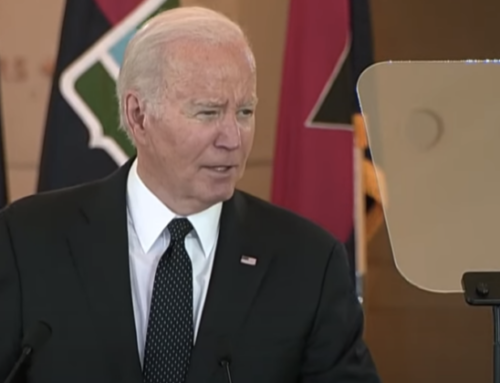World War III Update: Russian Election Meddling In 26 Countries Since 2020
Where has Russia targeted? Last year, a U.S. intelligence assessment found that Russia had engaged in a “concerted effort” to undermine confidence in at least 11 elections across nine countries between 2020 and 2022, while another 17 countries were targeted through “less pronounced” methods such as social media messaging. Efforts to influence the 2024 U.S. election are already underway according to U.S. officials.
Putin has new cyber-tools that threaten democracy, Ukraine warns
Oleksiy Danilov, Ukraine’s national security adviser, warns the U.K. and U.S. that Vladimir Putin will meddle in 2024 elections
Tuesday, February 27, 2024
By Tom Ball
Reprinted from The Times [London]
Russian spies have developed an artificial intelligence tool that Moscow is using to meddle in elections in Britain and the United States on a scale “exponentially greater” than ever before, Ukraine’s national security adviser has warned.
In an interview with The Times, Oleksiy Danilov said that AI had enabled Russia to substantially ramp up its disinformation campaigns, designed to sow division and influence public opinion, and that Moscow now had specific units dedicated to every country holding an election in Europe.
He said: “Artificial intelligence is a huge step forward for Russia and it makes the impact [of their meddling] exponentially greater.”
Just under half of the world’s population will go to the polls for national elections in 2024, more than in any previous year.
The result of America’s presidential election in November could have significant consequences for Ukraine’s war effort, with Donald Trump, the Republican frontrunner, having expressed scepticism about military funding for Kyiv and described President Putin’s invasion as “genius” and “savvy”.
Moscow had previously relied on armies of workers manually spreading online disinformation from a “troll factory” in St. Petersburg on social media platforms such as Telegram, Twitter, Facebook and Instagram.
Now just “two or three” agents could create “tens of thousands” of authentic-seeming fake accounts, Danilov said, adding: “AI is a huge step forward for Russia.”
Russia’s ability to interfere in the affairs of foreign countries and conduct operations was thought to have been stymied by expulsions of Russian spies from embassies around the world. Europe alone has expelled more than 400 suspected Russian intelligence officers since the full-scale invasion of Ukraine two years ago.
But the murder of Maxim Kuzminov, a Russian defector, who was killed in the Spanish seaside town of Villajoyosa this month, was a stark reminder of its continued ability to carry out lethal operations on foreign soil.
So extensive is Moscow’s network of informants and agents that it is impossible to eradicate Russian interference, Danilov said. “Students, wives, tourists ― all of them are used by Russia to do their bidding abroad.”
The FSB, Russia’s security service, was also issuing contracts to European criminal gangs, a relationship that had been made easier by the advent of cryptocurrencies, he said.
“It was the modus operandi of the KGB, and it is the case again today where they are using a combination of European criminal gangs to do their work in conjunction with trained officers.
“There are criminals sitting in the Kremlin and they use criminals to do their work for them. The country is run on criminality.”
With Republican opposition to Ukraine funding growing, officials believe that Moscow is likely to try to interfere with a heavy hand in 2024.
Thirteen Russians ― including Yevgeny Prigozhin, the deceased Wagner Group chief and reputed leader of the St Petersburg Internet Research Centre, known as the “troll factory” ― were criminally charged for interfering in the 2016 U.S. election to help Trump to win the presidency.
Danilov said that in its cyberespionage operations against Ukraine, Russian agents were now spreading 166 million disinformation posts on platforms such as Telegram, Facebook, Instagram and Twitter every week.
Of those, 36 million last week were aimed at discrediting senior Ukrainian officials; 23.5 million at dividing political and military unity; 51 million at demoralising the army; and 55 million at demoralising the public.
He cited western media outlets quoting false Ukrainian casualty figures and protests over fake mobilisation information, both of which had originated on Russian-created Telegram channels, as examples of the disinformation campaign’s effectiveness.
Danilov was speaking a day after President Macron of France said at a meeting of European leaders in Paris that there was now a consensus on the continent that Russia would seek to attack other countries in the coming years.
The Ukrainian adviser welcomed the comments, but questioned why it had taken Europe so long to “wake up” to the threat posed by Russia.
Referring to the British prime minister who tried to appease Adolf Hitler before the Second World War, Danilov said: “For years, countries preferred to take the Chamberlain route, thinking it better to close their eyes and ignore the warning signs. That lack of principle is what has led to the situation we are in now.”
RELATED:
World War III Update: If you’re waiting for…
Living In The Daze of Deception: Part 1, Part 2, & Part 3 — Pastor Jack Hibbs
World War III Update: Chinese hackers target infrastructure
World War III is Here and We’re Losing It
World War Three is approaching fast, and too few are willing to admit why







Leave a Reply, please --- thank you.